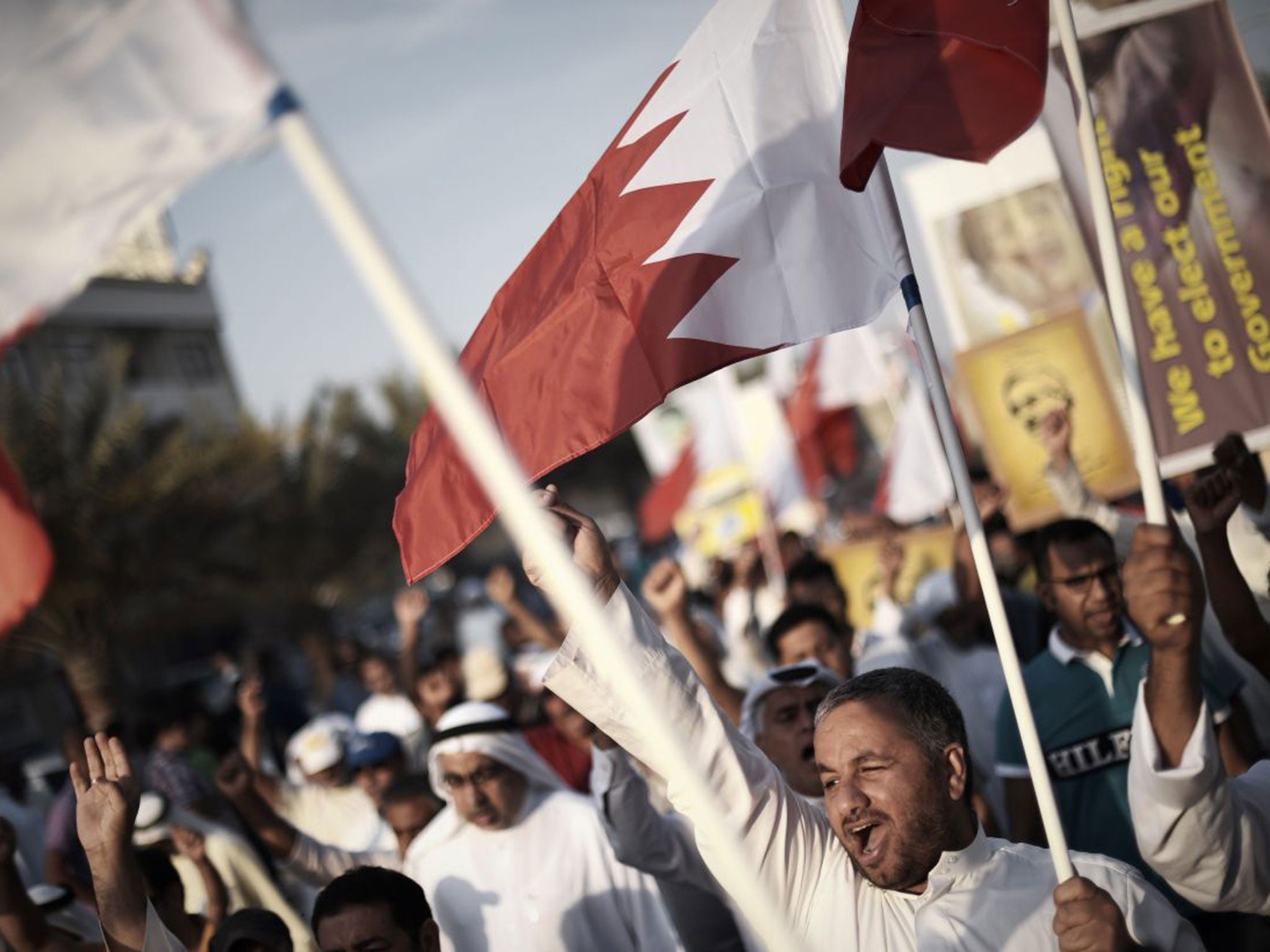Hussain Jawad's detainment and torture highlights Britain's shameless stance on Bahraini rights
The UK has not only failed to issue meaningful condemnation of the Gulf state's abuse, it has significantly deepened its alliance with Manama

Your support helps us to tell the story
From reproductive rights to climate change to Big Tech, The Independent is on the ground when the story is developing. Whether it's investigating the financials of Elon Musk's pro-Trump PAC or producing our latest documentary, 'The A Word', which shines a light on the American women fighting for reproductive rights, we know how important it is to parse out the facts from the messaging.
At such a critical moment in US history, we need reporters on the ground. Your donation allows us to keep sending journalists to speak to both sides of the story.
The Independent is trusted by Americans across the entire political spectrum. And unlike many other quality news outlets, we choose not to lock Americans out of our reporting and analysis with paywalls. We believe quality journalism should be available to everyone, paid for by those who can afford it.
Your support makes all the difference.On the night of 16th February, the latest victim in Bahrain's war on domestic dissent was arrested by masked policemen in Manama, the tiny Gulf Kingdom's capital. The target on this occasion was Hussain Jawad, head of the European-Bahraini Organisation for Human Rights (EBOHR), who is well-known for his condemnation of abuses committed by the regime.
Jawad is at the time of writing being held in detention by the regime, and according to EBOHR (in a statement collected from Mr Jawad through his lawyer) has been subjected to torture, beatings and sexual abuse. These assaults are alleged to have taken place at Manama's notorious Crime Investigation Directorate (CID) site.
The purpose of Jawad's alleged mistreatment appears to have been to punish him for his rights advocacy and to silence a staunch critic of the government- if possible, by finding grounds to lock him up permanently.
Jawad has complained that within two days of his confinement he was tortured into confessing to the crime of “collecting money from [within] Bahrain and abroad to aid and abet saboteurs,” a statement he later retracted. At the present time he is facing possible life imprisonment for offences linked to his criticism of the state.
Jawad's allegations of abuse are troubling not because they are uniquely bad by Bahraini standards, but because they are entirely consistent with claims made by others detained in recent months as part of an intensifying state-led assault on dissidents, apparently spurred on by a drop-off in international criticism of the regime.
Allegations of misconduct levelled by Jawad against security forces “fall squarely within the pattern of violations that happen to people who get [taken] to the criminal investigation unit,” Said Haddadi, Middle-East researcher Amnesty International, told me. In numerous similar cases, “we have heard similar accounts in relation to the torture of detainees, in relation to sexual assault, ” he added.
Suppression of dissent in the Kingdom, which dramatically increased in response to large-scale pro-democracy protests in 2011, has continued apace over the past 12 months, a little-reported example of which being the Sisi-style arrest of Ali Salman, the Secretary-General of the government's main political opponents, the Al-Wefaq National Islamic Society. This has been accompanied by the detention and alleged torture of prominent rights activists such as Nabeel Rajab, sentenced recently for writing a critical tweet.
These abuses are far from the worst committed against Bahrainis by the authorities over the past four years. Amnesty has documented the torture of children arrested at protests and an independent inquiry commissioned by the Al-Khalifah monarchy recorded multiple killings in detention. No minister or senior security services figure has been held accountable.
This is where the government of Britain comes in: despite Bahrain's truly appalling rights record, the UK has not only failed to issue meaningful condemnation of the Gulf state's abuse, it has significantly deepened its alliance with Manama, while praising negligible efforts toward reform.
As was revealed in January, Bahrain is to host a British Naval base; in announcing this move, Foreign Secretary Phil Hammond cited “significant reform” in Bahrain as a sign that Bahrain was “travelling in the right direction.”
Prominent dissident Maryam Al-Khawaja told me that she viewed such statements as virtual “PR” for the regime, decrying the timing of Hammond's assertion, which took place at a moment “when the crackdown is much worse.”
Asma Darwish, Hussain Jawad's wife, expressed similar sentiments. When I asked her for a response to Britain's presentation of the situation in her country, she said: “I invite Hammond to my house to see what is really happening in Bahrain.”
“Then,'” she added drily, “I will wait for a new statement.”
If the UK genuinely wants to enhance human rights in Bahrain, it can do no better than to finally express outspoken criticism of the state's continuing abuse of those citizens, including Mr Jawad, who have been targeted, it seems, for no other reason than the exercise of their right to free speech.
The longer our expedient silence (and that of other key western allies) lasts, the more the Kingdom will feel emboldened to vindictively destroy the lives of its critics.
It's time to speak out.
Join our commenting forum
Join thought-provoking conversations, follow other Independent readers and see their replies
Comments